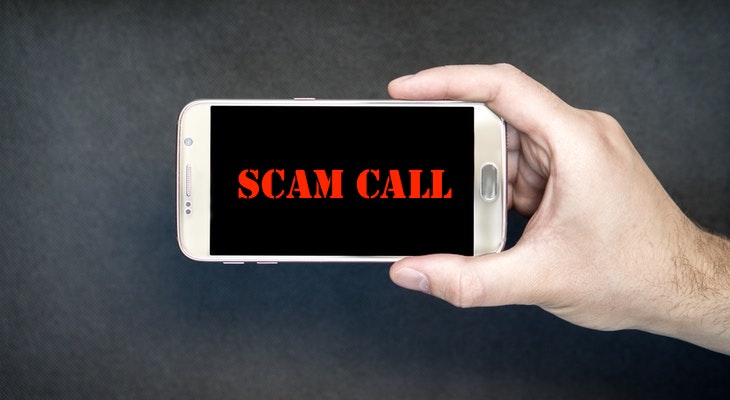
Scourge of Spam Calls: A Deep Dive into 02088798587 (2088798587) in the UK
Spam call warning in Uk: 02088798587 / 2088798587 / 020-8879-8587 / 020 8879 8587 / +442088798587 / 442088798587
Introduction
spam call 02088798587 2088798587 in uk : In our modern digital age, the scourge of spam calls has become an incessant nuisance for individuals across the globe. Among these unsolicited intruders, the number 02088798587
(also represented as 2088798587) stands out as a source of frustration and concern for residents in the United Kingdom. This post aims to delve deep into the origins, tactics, and preventive measures against spam calls from this number, shedding light on the perils and solutions associated with this ever-evolving issue.
Read more : https://sarangbos.com/alert-who-called-me-from-number-0222117258-in-japan/
I. The Pervasive Problem of Spam Calls
Before we dissect the peculiar case of 02088798587, it’s essential to understand the broader issue of spam calls. These unsolicited and often fraudulent phone calls have reached epidemic proportions worldwide. Whether they come in the form of robocalls, phishing schemes, or telemarketing ploys, they erode privacy, waste time, and can even lead to financial loss.
Spam calls can range from annoying sales pitches and fraudulent investment schemes to phishing attempts that aim to steal personal information. As the digital age advances, so do the strategies of these unscrupulous callers, making it imperative for consumers to be vigilant and well-informed.
II. Deciphering 02088798587: The UK’s Infamous Number
The phone number 02088798587, often written as 2088798587, has gained notoriety in the UK for its frequent appearance in spam calls. Though it may appear to be a conventional landline number, spam callers have harnessed its facade to perpetrate a wide array of nefarious activities.
One common strategy used by spammers is “neighbor spoofing,” where they manipulate caller ID information to make it appear as if the call is coming from a local or familiar number. This deceitful tactic is intended to increase the chances of the call being answered, as individuals are more likely to pick up calls from familiar area codes.
III. The Tactics Employed by 02088798587
Spam calls from 02088798587 adopt a multitude of tactics to deceive and manipulate recipients into engaging with them. Some of the prevalent methods include:
- Robocalls: Automated messages and recordings are frequently used to reach a wide audience efficiently. These calls may offer false promises, such as debt relief or free vacations, to lure individuals into providing personal information or making payments.
- Phishing Attempts: Some spam calls from 02088798587 pose as legitimate institutions, such as banks, government agencies, or tech support. The scammers behind these calls aim to trick individuals into revealing sensitive information or downloading malicious software.
- Investment Scams: The number 02088798587 has been linked to various investment scams, where fraudsters persuade victims to invest in non-existent or fraudulent schemes, resulting in significant financial losses.
- Aggressive Sales Pitches: Telemarketing calls from this number often employ high-pressure tactics to push products or services. These calls may be excessively persistent and manipulative.
IV. Protecting Yourself from Spam Calls
Protecting yourself from the menace of spam calls, including those originating from 02088798587, is of paramount importance. Here are some effective strategies to safeguard your personal information and peace of mind:
- Register for the National Do Not Call Registry: In the UK, you can register your number with the Telephone Preference Service (TPS) to reduce unsolicited sales and marketing calls.
- Install a Call-Blocking App: Utilize call-blocking apps that can automatically filter out suspected spam calls. These apps can help shield you from a variety of nuisance calls, including those from 02088798587.
- Be Skeptical: Always approach unknown or unexpected calls with caution. If someone claims to be from a reputable organization, verify their identity independently before sharing any personal information.
- Don’t Engage: Refrain from engaging with spam callers. Hanging up is often the best response, as any interaction can lead to further harassment.
- Report Spam Calls: Report spam calls to relevant authorities or your mobile carrier. This helps build a database of nuisance numbers and can contribute to legal action against spammers.
- Educate Yourself: Stay informed about current scams and common tactics used by spammers. Knowledge is your best defense against fraudulent calls.
V. Legal and Regulatory Actions
It’s worth noting that the authorities in the UK and other countries are actively working to combat spam calls and protect consumers. Legal and regulatory measures are being implemented to address this issue, including fines and penalties for those responsible for spam calls.
In the UK, regulatory bodies like Ofcom are continually monitoring and addressing the problem of nuisance calls. They have introduced rules and regulations to deter spam callers and protect consumers from unsolicited calls.
Conclusion
In an age where digital communication is a fundamental part of our lives, the persistence of spam calls is a regrettable side effect. The enigmatic 02088798587 (2088798587) number, known for its association with spam calls, highlights the need for vigilance, education, and regulatory action.
While we can’t entirely eliminate the menace of spam calls, we can take steps to protect ourselves and support the ongoing efforts to combat this issue. By being aware of the tactics used by spammers, leveraging technological solutions, and staying informed about regulatory actions, we can reduce the impact of spam calls and maintain our privacy and peace of mind in a world where communication is increasingly digital and indispensable.
FAQ
- What is a Spam Call? A . A spam call is an unsolicited, often automated phone call that typically aims to promote products, services, or scams. Spam calls can be annoying, intrusive, or potentially harmful.
- How Can I Identify a Spam Call? A . You can identify spam calls by looking for common signs, such as unfamiliar numbers, calls from international or premium rate numbers, or persistent calls from the same number. Be cautious of callers who pressure you for personal information or money.
- What Should I Do if I Receive a Spam Call? A . If you receive a spam call, it’s best to hang up immediately. Do not engage with the caller or provide any personal information. You can also consider blocking the number or using a call-blocking app to reduce future spam calls.
- How Can I Report Spam Calls in the UK? A . In the UK, you can report spam calls to your mobile network provider or the Information Commissioner’s Office (ICO). Most network providers offer services to block or filter spam calls, so it’s a good idea to check with your provider for available options.
-
How Can I Protect Myself from Spam Calls? A . To protect yourself from spam calls, consider registering your number with the Telephone Preference Service (TPS) to reduce unsolicited calls. Additionally, you can use call-blocking apps, keep your personal information private, and be cautious about sharing your phone number online.

